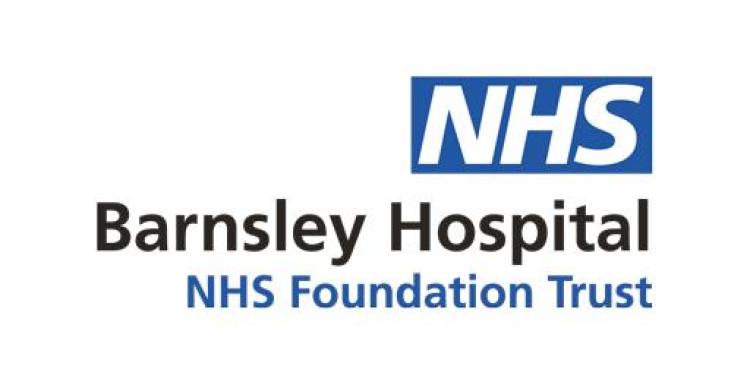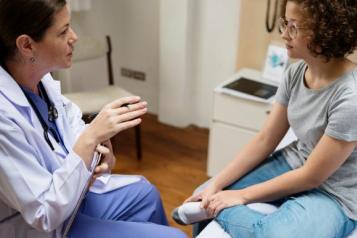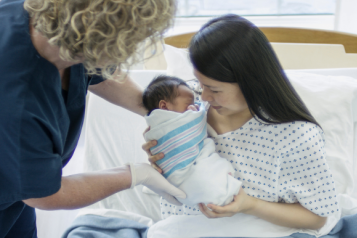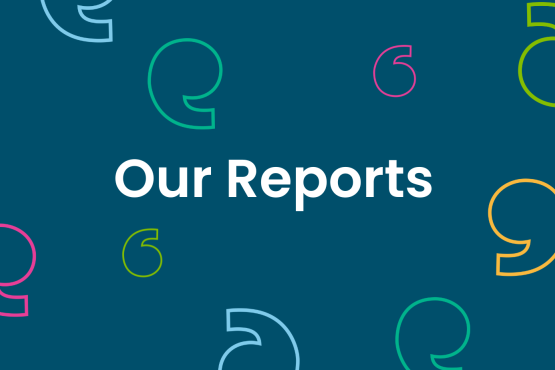Women urged to take up NHS breast screening invites

Last year (2021-22) 1.97 million women aged 50 to 70 (62.3%) attended screening appointments (within six months of invitation) out of the 3.17 million invited to book a check-up – a slight increase on the previous year (61.8%).
The NHS invited record numbers of women to attend breast screening appointments in the last year (3.17m invitations) – the highest ever for a single year.
The total number of women aged 50 to 70 screened in the year was 2.06 million3 which is the highest volume ever screened in a single year – and includes those not responding directly to an invite.
Screening is vital in helping the NHS identify cancers at an earlier stage and in 2021-2022 the NHS breast screening programme led to cancers being detected in 20,152 women across England, which otherwise may have been diagnosed and treated at a later stage.
New national figures on Cancer Survival in England, also published today, show that 91% of women diagnosed at an early stage of breast cancer, where the tumour is small (stage 1), have a survival rate of at least five years.
The five-year survival rate for diagnosis at a late stage, where the cancer has spread to other parts of the body (stage 4), is 39%.
Screening is an effective way to detect cancers at an earlier stage and it is in part thanks to our national breast screening programme that survival rates for breast cancer are so high.
“Today’s figures show more than 20,000 women were diagnosed and able to get treatment because they attended breast screening check-ups last year, yet nearly four in ten women aren’t taking up their screening invite and booking an appointment.
“We are sending out more breast screening invitations than ever before in an effort to save even more lives and we want more women to take up their screening offer when invited, so please if you have been invited – book an appointment at your local screening service or mobile unit as soon as possible.”
Breast cancer is one of the most common types of cancer and the risk increases with age, but it also has one of the highest survival rates, thanks to advances in NHS screening and treatment.”
“We know lives are saved when cancers are caught early and I would urge anyone who has received a breast screening invitation – even if you received the invite weeks or months ago – to make an appointment – it could save your life.
“It’s also important that women of all ages are aware of their breast health and know how to check themselves for cancer symptoms – this means getting to know how your breasts look and feel at different times and telling your doctor straight away if you notice any unusual changes.”
A woman’s risk of getting breast cancer goes up as they get older, with about four out of five breast cancers found in women over 50 years old.
Under the NHS Breast Screening Programme, eligible women will usually receive their first routine invitation for breast cancer screening between the ages of 50 and 53 and will normally be invited every three years until they are 70.
Women should look out for their invite letter and follow the instructions to book an appointment at their local screening service.
In addition to local screening services in hospitals, mobile screening vans are available in convenient community locations, such as supermarket car parks for women to easily book and access.
Last month, the government pledged an additional £10 million to speed up cancer diagnosis for tens of thousands of women. The investment will provide 29 new NHS breast cancer screening units and nearly 70 upgrades to services in areas where they are most needed. The new units and service upgrades will allow more women to be screened earlier, improving outcomes for patients.
NHS England is also asking women of all ages to be aware of their breast health and to know how to check themselves for cancer symptoms. Being ‘breast aware’ means getting to know how your breasts look and feel at different times and telling your doctor straight away if you notice any unusual changes.
It takes only a few minutes to perform and can help detect breast cancers at an earlier stage.
It is important that women continue to look at and check their breasts regularly, even if they have had a recent mammogram. Anyone who has noticed any abnormal changes should contact their GP as soon as possible.
Women are encouraged to use the ‘TLC’ method for checking their breasts and can visit Breast Cancer Now for more information:
- TOUCH your breasts. Can you feel anything new or unusual?
- LOOK for changes. Does anything look different?
- CHECK any new or unusual changes with your GP.
More information on NHS breast screening checks is available at www.nhs.uk/conditions/breast-screening-mammogram and you can find your local NHS breast screening service here.


